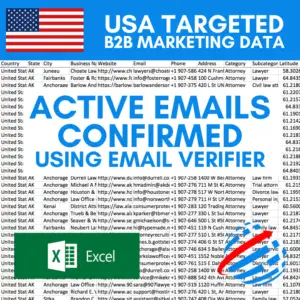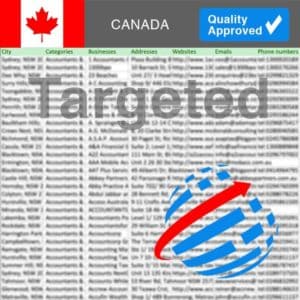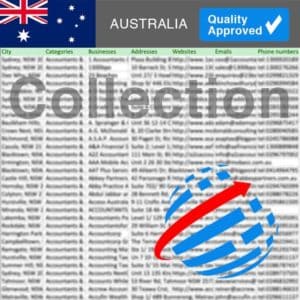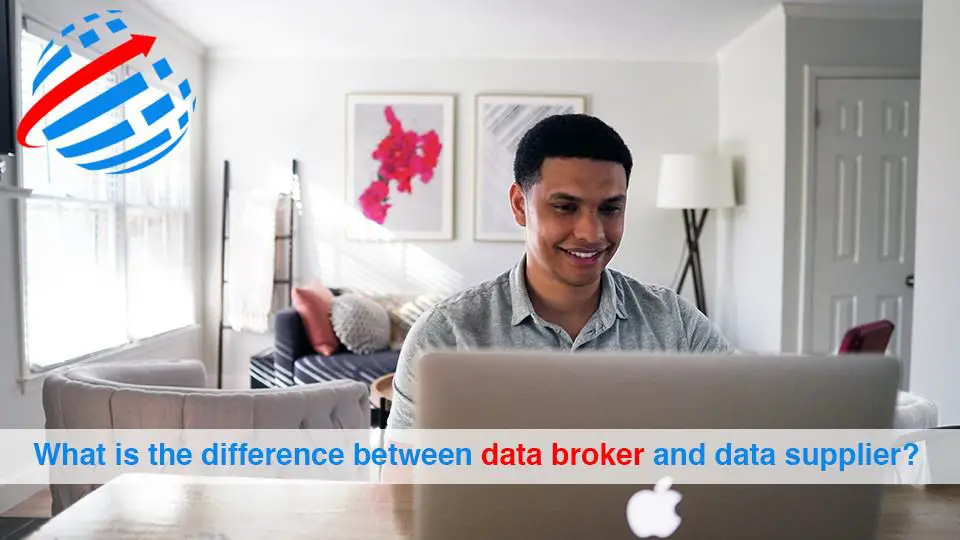Data is the lifeblood of any marketing campaign, and it’s what drives your metrics and what you use to inform decisions about who you’re reaching out to next.
What are data suppliers? Data suppliers aggregate data from different sources, such as public records, purchase histories, social media profiles, and so forth – then they package them up for sale or rent.
What are data brokers? Data brokers hold onto all of that information in one place. They also have a hand in gathering other types of information not publicly available: like health records or financial details – which might make them more valuable than someone who aggregates publicly available data.
Have you ever wondered if there is an ethical implication with using data for advertising purposes?
There are many ways to use it, but one of the most popular and successful uses that have been seen recently has come from Target (US general merchandise retailer).
They’ve used their customers’ information to advertise products at them by tracking what a customer browsed online to find out what baby items were needed or wanted. When the person went into Target, they could be greeted with personalized ads.
Another big part of marketing today is social media; companies make posts on Instagram, taking people back through their timeline where all those memories can inspire more purchases!
The use of data in advertising is not a new concept, and data has been used for decades to help advertisers and marketers understand their audience better so they can create more targeted ads. The use of data is evolving, including how it impacts different types of marketing channels such as digital ads, TV ads, and print ads.
Marketers are always looking for new ways to advertise their products. Data has become a valuable commodity in recent years.
Data is everywhere. It’s in the numbers on your credit card, the route you took to work this morning, and even how long you’ve been reading this sentence. Data can tell us a lot about ourselves – but it also has some interesting implications for marketing.
Does A Data Broker Make More Money Than Data Suppliers?
What is a data broker? A data broker (or information reseller) is an individual or business that provides consumer information to other companies.
A data broker can be a company that collects and sells personal data, but the term often refers to third-party aggregators of public records. Data brokers collect vast quantities of information on consumers from multiple sources, including social media platforms, retailers, credit card providers, and government agencies like voter registration lists.
Data suppliers usually sell their collected private information on themselves and others in exchange for monetary compensation. For example, if you wanted your name removed from a list, you would have to pay them money to pull it for you.
The vast majority of data brokers make more money than their suppliers, and this is because they have a higher profit margin and can sell the same data package for a higher price. On the other hand, data suppliers typically only charge a flat rate fee or commission (usually less than 10%), so they do not make as much per sale.
How Much Do Data Brokers Make?
Data brokers are making an average of $3.5 billion a year, and their profits are growing at a rate of 30%. Yet, despite all the money being made, there is little to no regulation or oversight on these data brokers.
The data broker industry has been able to thrive without any accountability because they’re not required to disclose exactly what information they have collected about consumers and how it is used.
So what do these data brokers do with your personal information? They use it for marketing by collecting details such as your age, location, profession, or income level to tailor ads specifically to you. Some companies will even track down people’s browsing history from sites like Google and Facebook to find out what products they can target.
What Is The Difference Between Data Broker And Data Guard?
In the world of data, there is a big difference between a data broker and a data guard. It’s not uncommon to hear the terms data broker and data guard used interchangeably. But what is the difference?
Data brokers are companies that collect, aggregate, analyze and sell consumer information. These companies often use tactics like targeted ads or email solicitations to acquire this information from consumers.
Data guards are companies that specialize in protecting customer data by using methods such as encryption technology and identity protection services. They work with customers that need help managing their sensitive consumer information such as credit card numbers or social security numbers.
To sum up, data brokers are in the business of collecting information about people without their permission and then selling that information to other companies for profit. Data guards are in the business of protecting their customers’ privacy by keeping all personal information private.
What Is The Difference Between Data Supplier And Data Warehouse?
Data is the lifeblood of any business, and it’s essential to know where it comes from.
A data warehouse collects your company’s data in a central location so you can analyze it for trends and patterns. The data warehouse is a repository for the organization’s raw data, and it typically contains detailed, factual information collected from various sources.
On the other hand, data suppliers are third-party vendors who sell their research to organizations so that they can make decisions based on a variety of different perspectives and analyses. Data suppliers are vendors that sell access to data sets.
An excellent way to think about this is like your body needs water – without it, you’ll die! You need data every day just as much as you need water, so make sure you’re using the right kind of supplier or building a solid foundation with a well-built warehouse!
What Is The Difference Between Data Warehouse And Data Warehousing?
Data warehouses and data warehousing are two terms that you will often hear in the marketing world.
Data warehouses are a type of database optimized for querying, analyzing, and reporting large volumes of data. Data warehouses are essential in marketing because they allow marketers to access and analyze data.
Data warehousing refers to the process of storing all company-wide information in one single location. Data warehousing is a process of collecting, managing, and storing large amounts of data for business intelligence purposes. The goal is to create a single database that other departments within the company can quickly access.
What Is The Difference Between Data Broker And Data Lake?
Data broker and data lake are two phrases that you often hear used in the marketing world. But what’s the difference between them?
Data brokers collect information from different sources to help businesses target their audience more precisely.
Data brokers are companies that collect and sell personal information, such as income and credit scores.
A data lake is a repository of raw data that anyone can upload for other organizations or companies.
Data lakes are an organization’s repository for all data points, including structured and unstructured data types.
Companies use these repositories to store the data in one centralized location to be analyzed at any time.
There is a lot of confusion about the differences between these two terms because they deal with data management. Still, there is a significant difference: Data brokers collect information from many sources while data lakes only focus on internal authorities.
Who Do Data Brokers Sell To?
Data brokers collect personal information and sell that information to businesses.
The data can be anything from your name, address, email address, income level, what you shop for at the grocery store, and more.
Data brokers use software to track people’s online behavior to determine who they are and where they live.
They then sell this data to other companies so these companies can market goods or services to them.
Data brokers have many different types of information about you, including your name, address, phone number, email address, and even what kind of car you drive.
Do Data Brokers Sell B2B Data?
Data brokers are on the front lines of marketing research. They gather and sell b2b data to help marketers better understand their customers, prospects, and competitors. Data brokers have access to a wealth of information about people that is often unavailable to even large companies with significant budgets like Google or Facebook.
Data brokers are a little bit different than the companies you think of when it comes to data. Data is all around us, but what most people don’t know is that certain types of data have been aggregated and sold for marketing purposes.
These data types include information about your location, income level, marital status, interests, and more.
Conclusion
Data is a hot topic these days, and we need to know the difference between data brokers vs. suppliers and what type of data can be sold by each one.
A data broker gathers information from various sources like social media sites and public databases (like voter registration) to sell that information to other companies or individuals.
On the other hand, a supplier collects their original content through surveys, questionnaires, or focus groups, which they then share with customers looking for specific types of information – usual. Usually used by businesses or marketing firms.
The difference between warehouse and warehousing relates specifically to how much storage space you have available; warehouses store smaller quantities of goods while warehousing stores all company-wide information in one single location.
Business Data List provides B2B data perfect for email marketing, direct mail postal marketing, and telemarketing. Give your marketing campaign a flying start at acquiring new customers with targeted, segmented data lists.
-
 Restaurants USA Premium Targeted Data List$39.99
Restaurants USA Premium Targeted Data List$39.99 -
 Restaurants USA Targeted Data List$34.99
Restaurants USA Targeted Data List$34.99 -
 Bars USA Targeted Data List$4.99
Bars USA Targeted Data List$4.99 -
 Restaurants Ireland Targeted Data List$16.99
Restaurants Ireland Targeted Data List$16.99 -
 Restaurants Canada Targeted Data List$24.99
Restaurants Canada Targeted Data List$24.99 -
 Restaurants New Zealand Targeted Data List$16.99
Restaurants New Zealand Targeted Data List$16.99 -
 Restaurants Germany Targeted Data List$4.99
Restaurants Germany Targeted Data List$4.99 -
 Restaurants Sydney Targeted Data List$5.99
Restaurants Sydney Targeted Data List$5.99 -
 Restaurants Perth Targeted Data List$6.99
Restaurants Perth Targeted Data List$6.99 -
 Restaurants Melbourne Targeted Data List$4.99
Restaurants Melbourne Targeted Data List$4.99 -
 Restaurants Brisbane Targeted Data List$6.99
Restaurants Brisbane Targeted Data List$6.99 -
 Restaurants Adelaide Targeted Data List$4.99
Restaurants Adelaide Targeted Data List$4.99
Glossary
A data provider is a company or individual that has already collected and stored a database of information. Data brokering have the means to capture large amounts of data.
A data brokerage is an institution that collects, gathers, and sells consumer data from anywhere it can draw it up. These include public databases such as online criminal histories or voting registers, purchases records from grocery store chains or retail outlets, listing assets for a divorcing couple, or job-hunters’ resumes. For data, broker lists, click here.
A data marketplace is a platform for buying and selling personal data, and it presents a potential market between individuals, organizations, companies. The two major types of data exchanges are ad exchange and information exchanges.
A data product is an information in the form of data that is useful for a specific end. Data companies usually create by compiling and combining existing datasets into new consumer data, unique resources, or putting data in a context people can understand.
An information broker is someone who deals in buying and selling informational goods or services. Large online databases are a great example of the digital world’s information brokers, and people use them because they provide easy access to otherwise hard-to-find data.
A data aggregator extracts data from disparate online sources and then turns the data into a meaningful whole. There are two primary aggregations or “data-pulling” areas: social media platforms, such as Twitter, and web content. Data aggregators use programming scripts to scrape different content creators’ sites for relevant information on a particular topic, consumer requests and aggregate it into one place. The more popular the aggregator website becomes, the more frequently they’ll scrape appropriate information to add to their database, resulting in more accurate results over time.
Data privacy measures a person’s control over how others can use their data or personal info, and it includes both the collection of that data and its distribution. The California Attorney General J. Foxx defines it as being when someone has “the right to decide 1) what is collected, 2) who has access to that information, and 3) for what reasons” (CCPA).
CCPA’s definition: The California Attorney General’s Office is the state agency that ensures fairness in our communities and workplaces, safeguards consumers, combats criminal exploitation, and fosters economic opportunity.
CCPA Obligations: The California Consumer Protection Act says that any time a business is informed of a data security breach, they must notify all the customers affected by the breach.
A consumer reporting agency gathers and reports information about a person’s credit history, qualifications to work for certain occupations (e.g., financial institutions), and credibility as an employee. One of the primary functions of the service provider is to screen potential borrowers applying for loans or people applying for jobs which will be handling money or writing checks on behalf of the company, e.g., notary publics, signers with power of attorney for checking accounts and deeds for actual property deeds.
Data protection is the process of preserving and organizing data to promote efficiency and integrity.
Consumer privacy is the personal space of a customer in which they can process information, have access to goods and services, and generally operate outside of third-party scrutiny.
First-Party Data is generated from a company’s records, like the data entry of clients into an app or business database.
Third-party data comprises a consumer’s social media activity, website behavior, interactive posts and reviews (data scraped from sources like Facebook and Twitter), purchase patterns, direct marketing, analytics, and product interest signals. This source of information can be precious to the data provider and marketers because it reveals how consumers feel about brands in their daily interactions with the world.
Data sharing is the act of two or more people in different locations, organizations, companies, or governmental entities convincing themselves to work together to make their data available for analysis.
Vermont Law is a collection of Vermont’s laws and legal system, the state in the northeastern United States.
Acxiom is a company that deals with personal data. They collect what you put in and store it, then use it to target advertisements for goods or services to you.
A data point is a single number or bit of information from a database, measurement, or another source. Data points are collected to be used in analysis and inference.
Commercial purpose data is generic retail data that does not identify specific individuals in a dataset. It’s typically turned into useful information by analyzing it with an algorithm.
Identity theft occurs when someone steals your private information and uses it in a way that causes harm. This is commonly done through computer hacking, phishing scams, or obtaining data from other individuals who have access to personal data for reasons not related to identity theft.
The Social Security number is a 9-digit number issued to US citizens after applying at one of 15 Social Security Administration offices around the country.

